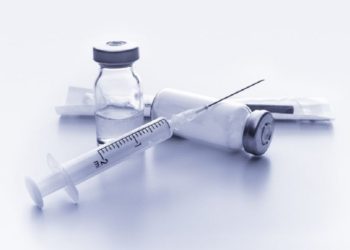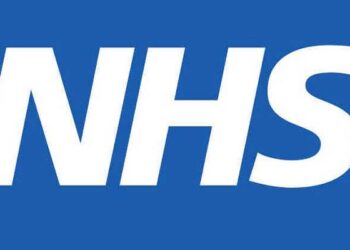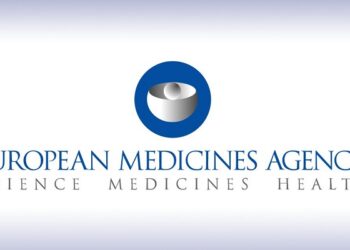Shire plc and Kamada Ltd a plasma-derived protein therapeutics company focused on orphan indications, announced that the US FDA has approved an expanded label for GLASSIA [Alpha-1 Proteinase Inhibitor , marking the first treatment for adult patients with emphysema due to severe Alpha-1 Antitrypsin (AAT) Deficiency that can be self-infused at home after appropriate training.
Patients with AAT Deficiency have low or undetectable levels of a protein called alpha-1 antitrypsin or AAT, which helps protect lung tissue from damaging enzymes that are released by white blood cells.1 AAT deficiency can result in early onset emphysema.2 Treatment with GLASSIA replaces the missing or deficient AAT protein in the blood and lungs.
There are an estimated 100,000 people in the United States who have the disorder, though under-diagnosis remains an issue, as fewer than 10 percent of those living with AAT deficiency have been properly diagnosed.3,4 The World Health Organization (WHO), the American Thoracic Society (ATS), the European Respiratory Society (ERS), and the Alpha-1 Foundation’s Medical and Scientific Advisory Committee (MASAC) recommend that all patients with Chronic Obstructive Pulmonary Disease (COPD) be tested for the disorder.5
“Patients with Alpha-1 Antitrypsin Deficiency are managing a challenging disorder that may require regular regimented care. For these patients, our company strives to find ways to provide them with more choices and flexibility in their treatment regimen,” said Blaine Forshage, Head of the US Immunology Franchise for Shire. “With this new label for GLASSIA, we’re now able to offer the only AAT augmentation treatment that is approved for patients to self-administer at home, helping to deliver on our goals to support the Alpha-1 community.”
Approved in 2010, GLASSIA is the first and only liquid ready-to-use augmentation product approved for treatment of clinically evident emphysema due to severe AAT Deficiency. Kamada and Baxalta (formerly Baxter International Inc’s BioScience business and now part of Shire) entered into an exclusive strategic cooperation agreement for the distribution and license of GLASSIA in 2010. Under the terms of the agreement, Baxalta is the exclusive distributor of GLASSIA in the U.S., Canada, Australia and New Zealand, and is licensed to produce GLASSIA using Kamada’s technology at a Baxalta facility for sales in those countries.
“Self-infusion, after proper training, can be a convenient way for Alphas to receive their augmentation therapy,” said Henry Moehring, Alpha-1 Foundation president and CEO. “We at the Foundation are always gratified to see expanded treatment options for Alphas, and we applaud the FDA’s approval of this new labeling.”
“We are excited that the FDA has now permitted patients to self-infuse GLASSIA at home,” said Amir London, Kamada’s Chief Executive Officer. “By avoiding the need for reconstitution, our product allows for an overall reduced treatment preparation time. With this new approval, patients have the convenience of self-infusion at home, in addition to potentially reducing costs previously associated with infusion services for administering augmentation therapy in the hospital. We are very pleased with the continued increase in the number of U.S. patients treated with GLASSIA, and believe that self-infusion will contribute significantly to future growth. Importantly, due to the Company’s state-of-the-art production facility, Kamada has the capacity to support the increasing demand for GLASSIA. Finally, we look forward to a strong partnership with Shire that is beneficial to the patients we serve, and both of our companies.”
References
1. American Thoracic Society; European Respiratory Society statement: standards for the diagnosis and management of individuals with alpha-1 antitrypsin deficiency. Am J Respir Crit Care Med. 2003 Oct 1;168(7):818-900.
2. Alpha-1 Foundation. What is Alpha-1? Accessed June 1, 2016. Available at: https://www.alpha1.org/what-is-alpha1
3. Alpha-1 Foundation. Lung Disease. Accessed June 9, 2016. Available at: http://www.alpha1.org/Newly-Diagnosed/Learning-about-Alpha-1/Lung-Disease
4. Silverman EK and Sandhous RA. Clinical Practice Alpha1-Antitrypsin Deficiency. N Engl J Med. 2009; 360(26):2749-57
5. Alpha-1 Foundation. Testing for Alpha-1. Accessed June 1, 2016. Available at: https://www.alpha1.org/Newly-Diagnosed/Learning-about-Alpha-1/Testing-for-Alpha-1
Glassia is a registered trademark of Kamada Ltd., and used under license.
Shire and Baxalta are trademarks of Shire plc, its subsidiaries or affiliates.
Shire Investor Relations
Sarah Elton-Farr
seltonfarr@shire.com
+44 1256 894157
Ian Karp
ikarp@shire.com
+1 781 482 9018
Robert Coates
rcoates@shire.com
+44 1256 894874
Shire Media
Gwen Fisher
gfisher@shire.com
+1 484 595 9836
Debbi Ford
debbi.ford@shire.com
+1 224 727 2079
Kamada Contacts:
Gil Efron,
Chief Financial Officer
ir@kamada.com
Bob Yedid,
LifeSci Advisors
+1 646 597 6989
About Shire
Shire is the leading global biotechnology company focused on serving people with rare diseases and other highly specialized conditions. We have best-in-class products available in more than 100 countries across core therapeutic areas including Hematology, Immunology, Neuroscience, Lysosomal Storage Disorders, Gastrointestinal / Internal Medicine / Endocrine and Hereditary Angioedema; a growing franchise in Oncology; and an emerging, innovative pipeline in Ophthalmics.Our employees come to work every day with a shared mission: to develop and deliver breakthrough therapies for the hundreds of millions of people in the world affected by rare diseases and other high-need conditions, and who lack effective therapies to live their lives to the fullest.www.shire.com

















